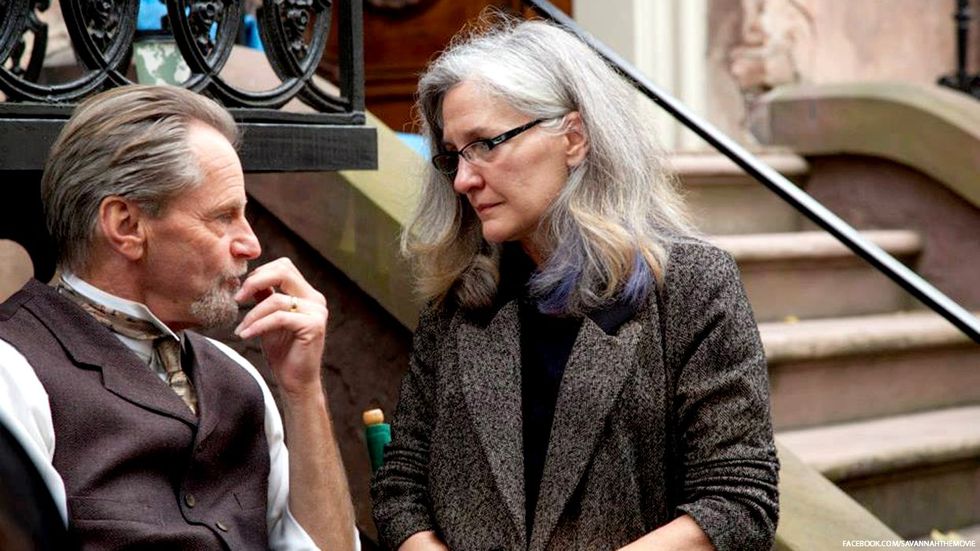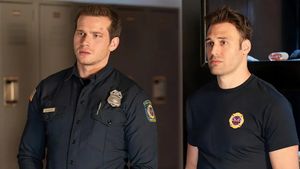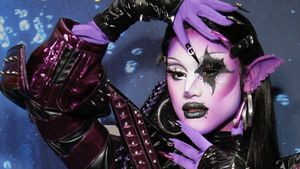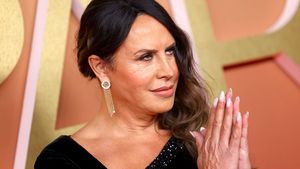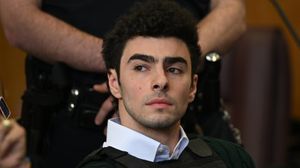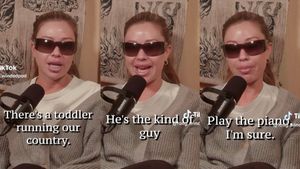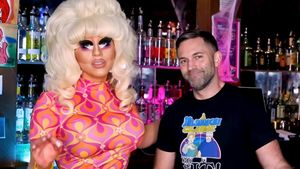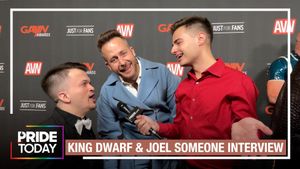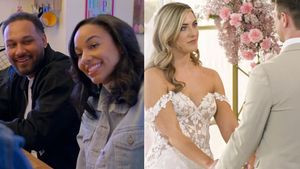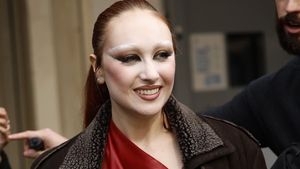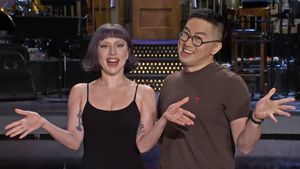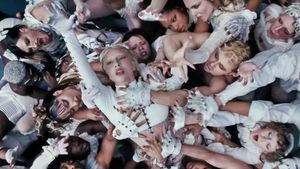Annette Haywood Carter is a queer female director, a rarity in Hollywood. And rarer still, one who returned to helming films after taking decades off to raise her children.
Carter’s directing career began in 1994, when she helmed The Foot Shooting Party, starring Leonardo DiCaprio. She followed that up in 1996 with Foxfire, an independent queer film that starred a young Angelina Jolie. It’s considered by many to be the film that launched Jolie’s career.
She followed those hits up with a Lifetime hit, Love is Strange, starring award-winning actors Ron Silver, Kate Nelligan, and Julie Harris, and Savannah, which starred the late, iconic Sam Shepard. Carter also is a prolific writer who penned several films and television projects.
Carter stepped away from Hollywood to teach and spend those important years with her kids, which included her son coming out to her at age 13. That's the moment Carter told her child about her truth — she's queer.
Carter is now back to making movies, having recently completed Daughter of the Bride, starring Marcia Gay Harden and Aidan Quinn, a reimagining of the Father of the Bride story, with the mother getting married and a daughter reconciling not being the main lead in her life.
The Advocate sat down with Carter recently to discuss her return to directing a major Hollywood film as an older, queer woman, the changing and growing influence of women directors in Tinseltown, and improving LGBTQ+ representation in entertainment.
Congratulations on the film! How does it feel to be back?
It feels terrific! A lot of people have been giving me great feedback so far. It’s an uplifting film, and I wanted people to appreciate that aspect of it. We’re all dealing with so many issues it seems right now, so making a movie that makes you feel good is important.
How was it getting adjusted to being behind the camera once again?
Within the first five minutes, I felt like I never left. It’s a cliché, but it was just like riding a bike. After all these years of not getting the jobs, it’s a good lesson in not giving up. You can get kicked to the curb, and you just need to keep standing back up. There was a point in time that I thought I’d never direct again, but now to be back, and in demand, especially for producers looking for someone like me with that vast experience.
FoxFire Trailer (1996)youtu.be
Why do you think you, and other women in the industry, are back in demand? Is it because the last two best director Oscars have been women?
Yes, I’m sure that has something to do with it. As women get more notoriety that certainly helps. I also think directing is a skill, and if you’re lucky enough to work all the time, going from one project to the next, you get better and better, and it raises your skill level. Traditionally, it’s been a little more difficult for women, because they’d go two to three years between projects. The challenge is to keep evolving artistically, and when you’re absent during projects, that can be hard to do.
Now that you’re back in the game, so to speak, are you ready for your next challenge?
Yes, now that I’ve got my sea legs, I’m eager to work all the time, and work as much as possible.
Where did this desire to direct get its start?
Back in the late 1970s, I was living in what could be called the music capital of the country during that time, Athens, Ga., which produced R.E.M., Indigo Girls and the B-52s, who I got to know well. I started shooting music videos for them, and this was before MTV became a big thing, and then when it did become a pop-culture phenomenon, the videos of the B-52s took on a life of their own. At the time, I didn’t think much about how I could be a director, since those videos were more or less experiments and just playing around.
But you found the craft, so congrats on that! You started back in a time when being a female director in Hollywood was a rarity. Isn’t that right?
Yes, although looking back I never looked in the mirror and said, "You’re a female director." You just didn’t refer to yourself like that, and if you weren’t getting work, you couldn’t dare blame it on being female. Many of us just said we were directors and left it there. Now, in the last few years, that’s changed, and there’s pride about being a female director.
Women have banded together, where before women saw other women as competition. And now the Director’s Guild of America has so many diverse committees, including an LGBTQ one and a Women Steering Committee. In fact, they decided that they needed to help mid-career women, and that’s how I got the Daughter of the Bride job.
Daughter of the Bride - Official Trailer (2023) Marcia Gay Harden, Halston Sageyoutu.be
You didn’t start as a director.
I hit a lot of dead ends at first, that’s for sure. When I first set out to be a cinematographer, there were no women working the camera. It was all men. So, I thought I could be an assistant director, because again, men were the directors. Since I didn’t go to film school, I just figured being an AD was a way to get my foot in the door, but that didn’t pan out the way I thought it would. The only position where women were in the majority was as script supervisors so I started with that, and that was really a great decision because I got to work so closely with so many directors. I always say that being a script supervisor was my film school.
It sounds like you made the right choice. If we can talk about your identity for a moment, you had quite a journey?
First, my identity hasn’t changed, it's what people think of me has probably changed. When I was in college, I considered myself a bisexual. But then I was in a relationship with a woman for many years, so I was a lesbian. And then I married a man and had children, so labels about my identity never seemed to fit.
Now, I’m at the age where I don’t debate my identity. To be honest, it wasn’t until the term queer became an acceptable label that I thought fit me. That’s why, for me, queer is the right description.
So, what is next for you?
The queer community is so important to me. Besides myself, my son came out to me as gay when he was 13, and his longtime partner identifies as non-binary. I’ve also taken so much interest in the trans community, and so I’m in development of a trans story that — well, it’s not a trans story, it’s a family story and that’s how it should be referred to and that’s how potential audiences should look at it. It just so happens that one of the main characters is trans.
In fact, I don’t get into how and why she became transgender — it’s a story about a father and daughter. Considering the political climate we are in, it’s so important to normalize these people, and normalize the LGBTQ community into mainstream films.
